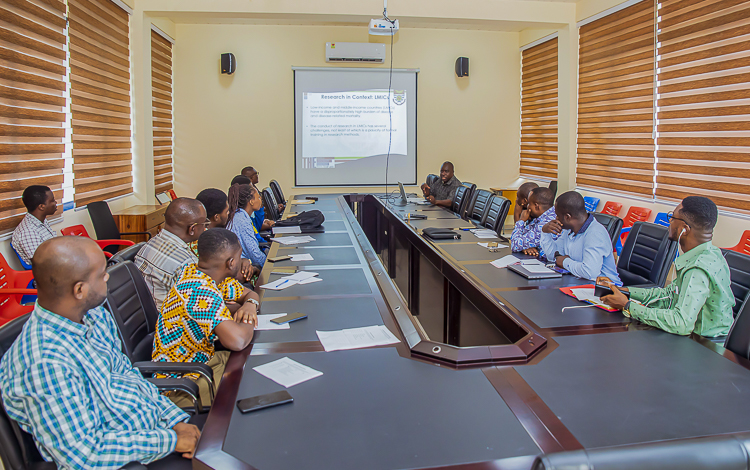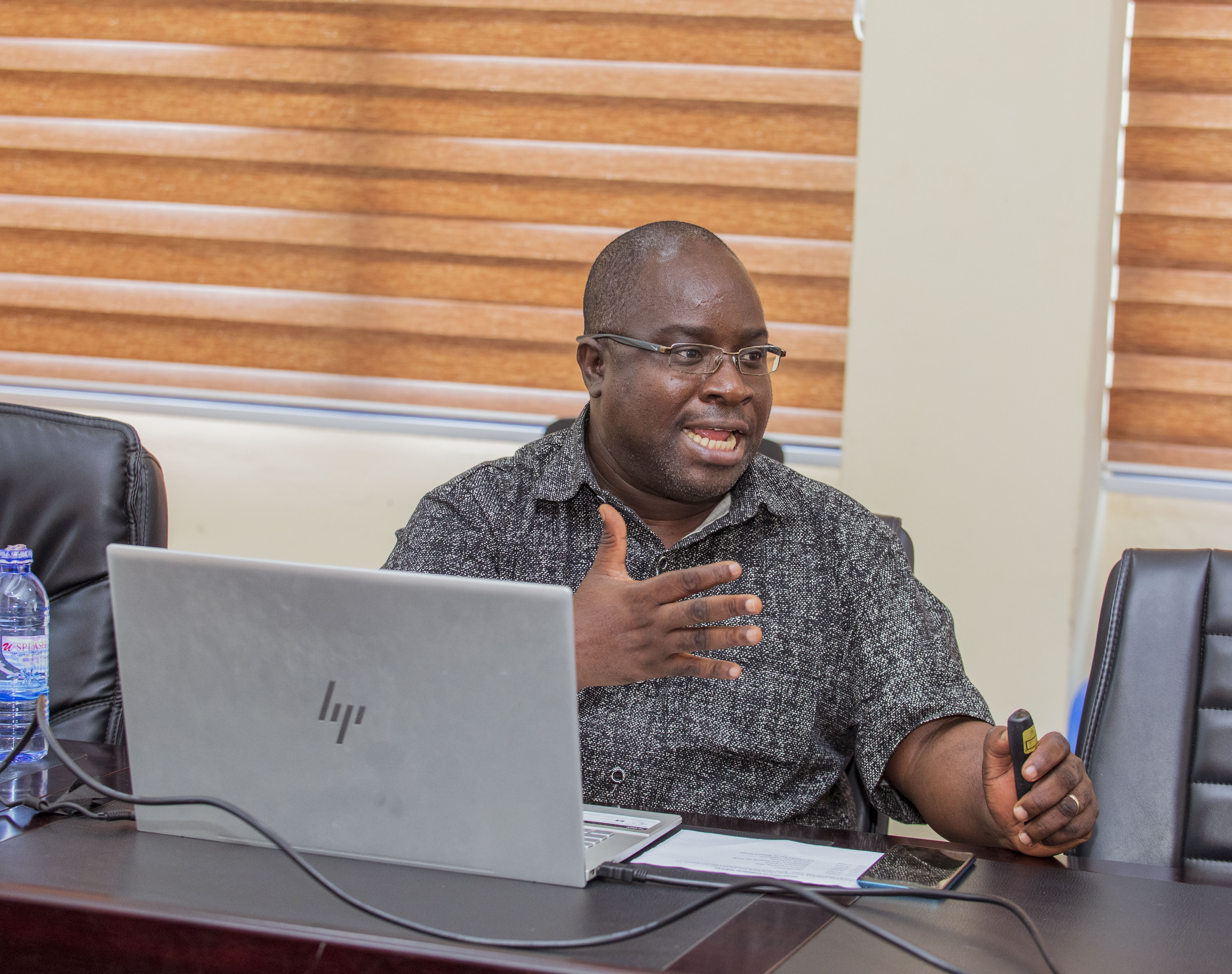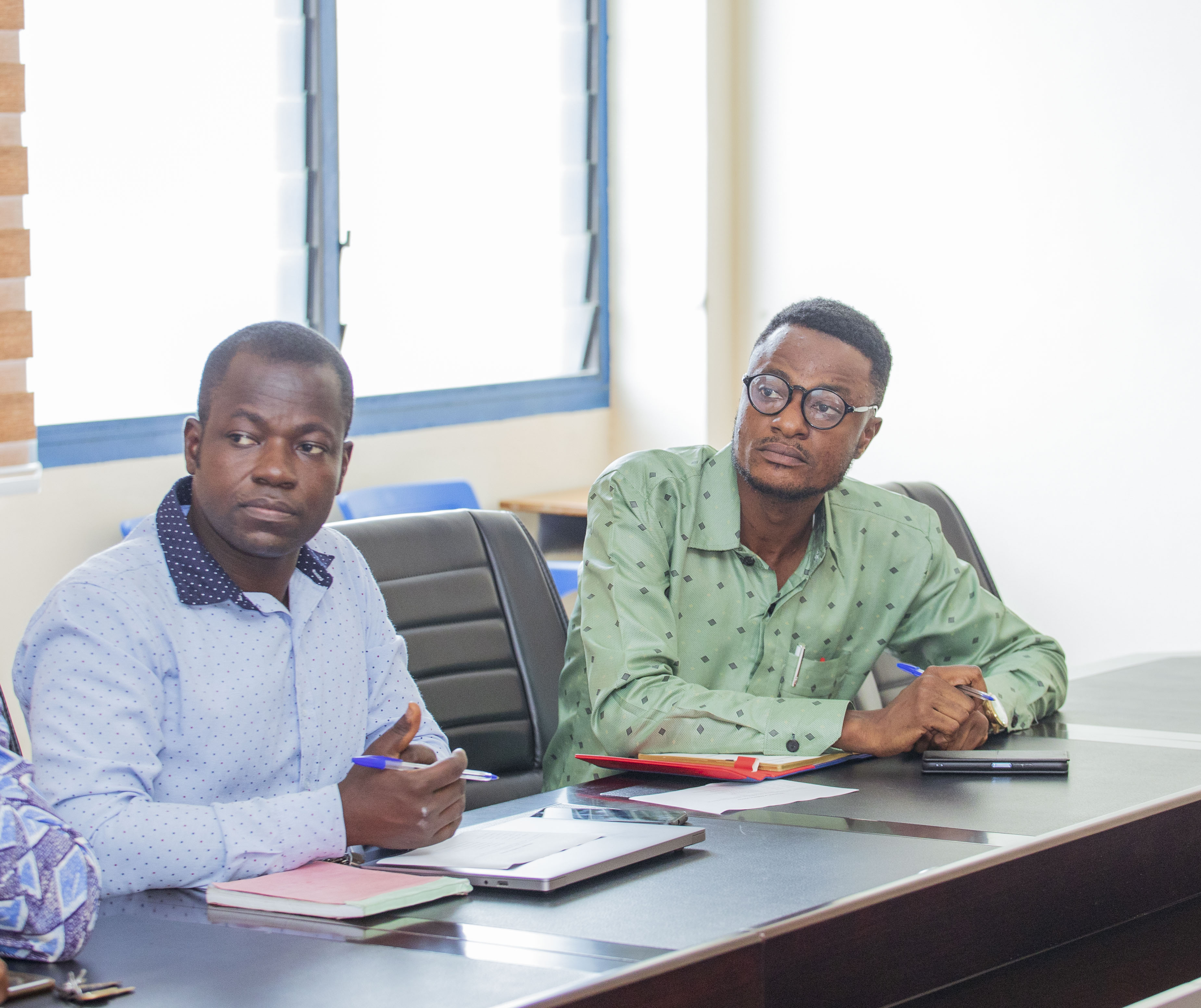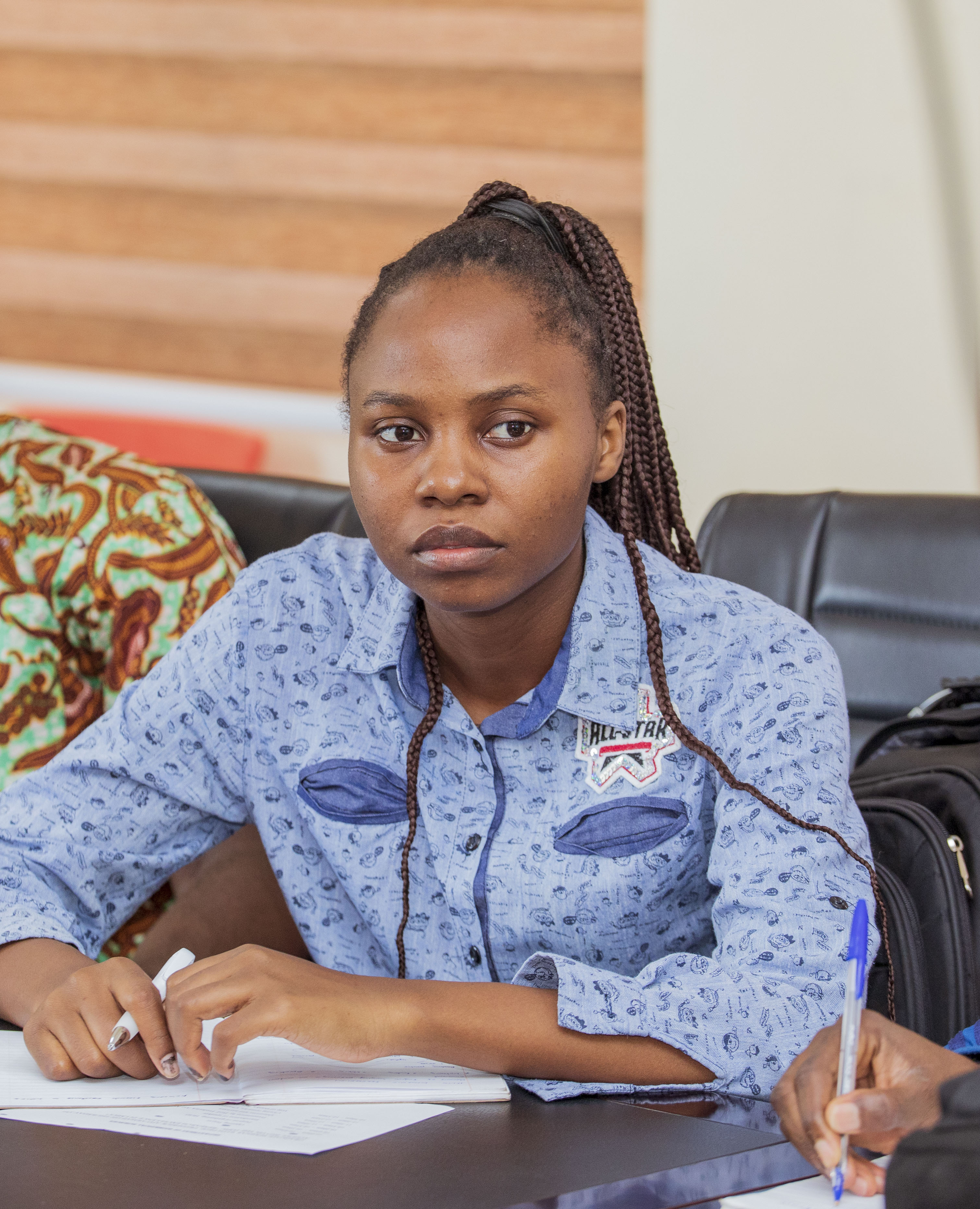The Directorate of Research Innovation and Consultancy (DRIC) has organised a seminar on grant proposal writing.
It was on the theme " Structure and essentials of a winnable grant proposal ".
Speaking at the programme, Director of DRIC, Prof. Frederick Ato Armah, said good proposal was a precondition to attract grant.
Prof. Frederick Ato Armah speaking at the workshop
"No grant comes through without a proposal. To win a grant, you must write a good proposal", he added.
Prof. Armah noted that grant proposal was needed because " it requires funding, helps plan the proposed research and help to organise research in a logical, focused and effective way."
Prof. Armah singled out project title and acronym, cover letter, executive summary, need statement, goals and objectives and methodology as major components of a grant proposal.
He also mentioned that " a need statement is a compelling description of the need or problem to be addressed by the applicant.
Dr. Samuel Bamfo (Department of Molecular Biology and Biotechnology) and Enoch Acheampong (a Teaching Assistant at the Department of Communication Studies) at the event.
" In a need statement, your organisation should have the mandate to address the need; the need statement should address the call, and many more," he continued.
He advised that the need statement should be sweet, concise and simple and easily digestible.
In the process of writing a need strategy, Prof. Armah mentioned that “we state clearly what the need is, we use clear and credible statistics to support our argument, give clear sense of urgency and the need statement should be persuasive without being wordy".
He added that a good need statement gives the viewer the needed information to understand the objectives and approaches in the proposal, builds up towards answering a specific question that is unknown, discuss relevant data on the subject, etc.
Prof. Armah emphasised that a research plan must be so detailed that an independent researcher could carry out the study based on the plan.
He added that to write a good proposal, one must read the call very well.
Sarah Osei, undergraduate student
Prof. Armah pointed out that a WhatsApp platform had been created for ongoing interaction and guidance. He indicated that participants would receive support in fine-tuning their proposals, meeting deadlines, and submitting applications to funding agencies.
Feedback from the participants was overwhelmingly positive, with many expressing newfound confidence and ambition to pursue larger research grants.
"This experience has been transformative. It is not just about skills; it is about the mindset shift that I can contribute significantly to global research narratives," Mr. Enoch Acheampong, a workshop participant, said.
Prof. Desmond Omane Acheampong, Dean of School of Allied Health
UCC's commitment to supporting and advancing the careers of its female faculty through practical training highlights a broader institutional goal of fostering an inclusive and forward-thinking academic community. The workshop sets a precedent for similar initiatives to nurture research professionals well-equipped to deal with contemporary challenges through innovation and scholarly distinction.
Source: Directorate of Public Affairs






